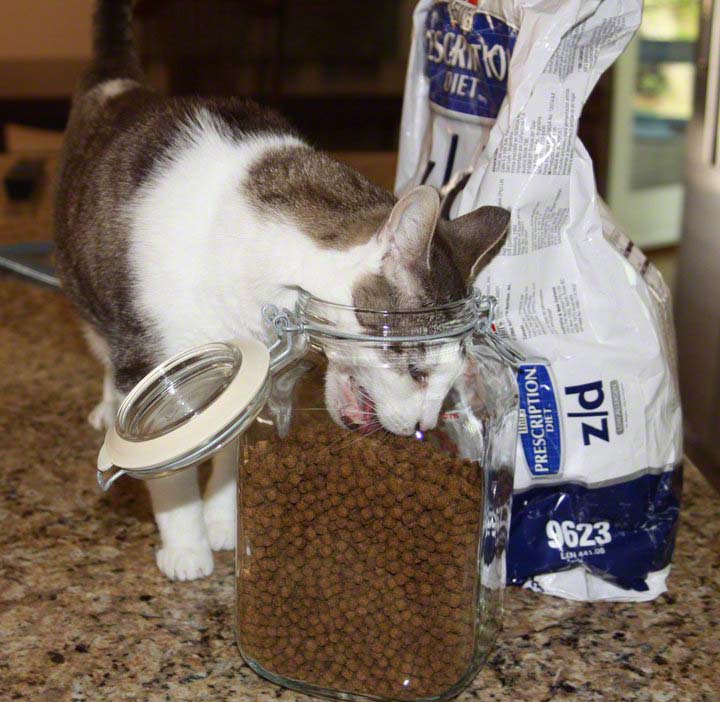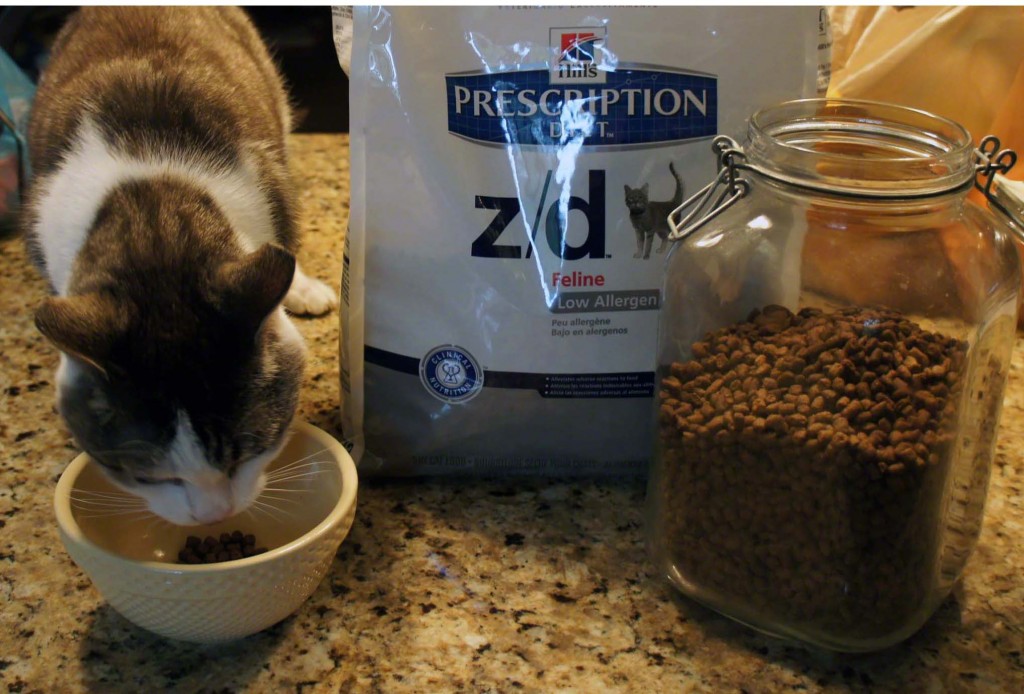The chow I chomp is Hill’s Prescription Diet®, z/d® Feline Low Allergen formula.
I began eating z/d because I used to break out in hives and lose my fur. After some testing, it was determined that I was allergic to some of the protein in my food. Here is why this prescribed chow helped me.
The Hill’s Prescription Diet® z/d® is formulated with:
- Hill’s Hydrolyzed Protein System™, a highly digestible protein that minimizes the chance of an allergic reaction to food.
- A single highly digestible carbohydrate source to help avoid common food allergies
- Highly digestible carbohydrates and fats to help reduce gastrointestinal workload
- Increased omega 3 and 6 Fatty acids to help nourish my skin.
- And added antioxidants to help maintain a healthy immune system and skin barrier function.
Food allergy and intolerance can be quite serious resulting in sensitive or irritated skin, like in my case, or coat and ear conditions or even gastrointestinal upset. When a cat has a food allergy or intolerance, also called adverse reactions to food, the cat typically experiences an abnormal response to the protein in food. If your cat suffers from adverse reactions to food, it is super important to feed the right food.
At Hill’s, nutritionists and veterinarians have developed clinical nutrition especially formulated to help manage your cat’s dietary sensitivity and help reduce the possibility of adverse reactions to food.
It is also important to follow the guidelines for feeding.
Your veterinarian will give you the amount of chow to be chomped per day. They even give you a nice measuring cup so that your parents can administer just the right amount of food. Portion control is important not only humans but also for cats.
Allow me to demonstrate:
Not Practicing Good Portion Control
Practicing exceptional portion control
Signs and symptoms that your cat might have allergies
The most common sign of a food allergy in a cat is non-seasonal itching, that may be concentrated around the cat’s head and neck. My hives were mostly on my neck and sometimes chest. The excessive scratching and biting caused by the itching can lead to hair loss. Ear infections are a common for cats suffering from food allergies. Other typical symptoms involve signs of digestive distress, such as diarrhea and gas. Most unpleasant for both the cat and the parents.
If your cat is experiencing any of these symptoms, please consult your Veterinarian as soon as possible. Remember allergies can develop, we cats are not usually born with food allergies.
Thank you for reading and I hope you found my post helpful.


Glad this diet is keeping you healthy Gracey. I am on Hill’s y/d diet for hyperthyroidism. From Earl Gray.